On-Demand Outsourcing BPO Services for Healthcare Providers With 24/7 Coverage!
Save up to 70% on staffing costs!
Browse Specialty Staffing Services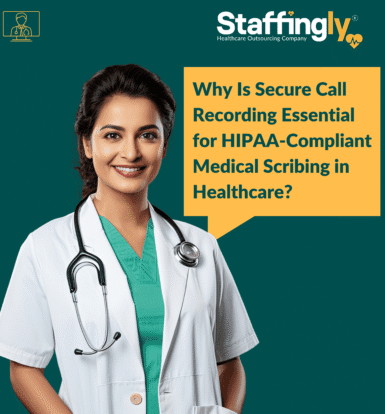
Why Is Secure Call Recording Essential for HIPAA-Compliant Medical Scribing in Healthcare?
In today’s healthcare environment, maintaining clear and accurate communication is crucial. With advancements in medical scribing, more healthcare practices are turning to secure call recording systems to ensure HIPAA compliance while streamlining medical documentation. 💬 “Every conversation in healthcare contains sensitive information. Ensuring that we meet HIPAA standards should never be negotiable.” For clinics and practices that rely on medical scribing, secure call recording is not just an option it’s a necessity. Why Call Recording Is Vital for HIPAA-Compliant Medical
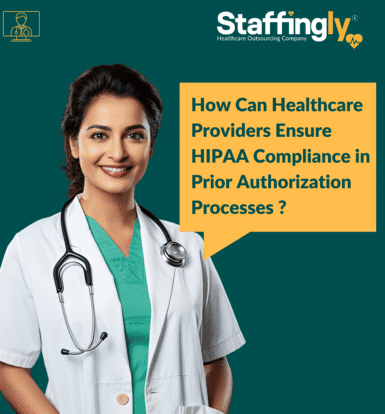
How Can Healthcare Providers Ensure HIPAA Compliance in Prior Authorization Processes ?
At Greenfield Hospital, the day begins as Dr. Smith, a cardiologist, looks over her patient charts for the morning. Among the many tasks she needs to accomplish, one stands out: submitting a prior authorization request for a crucial heart surgery for her patient, Mrs. Allen. This approval process isn’t just about paperwork; it’s about safeguarding Mrs. Allen’s sensitive medical data. As Dr. Smith prepares the necessary documentation, she’s keenly aware that HIPAA compliance is at the heart of everything she
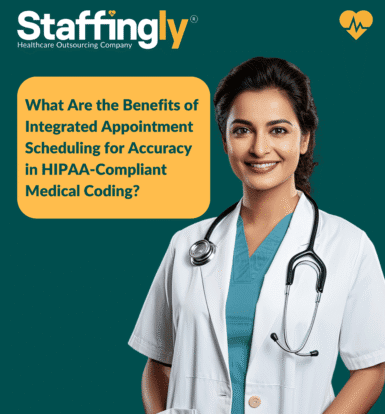
What Are the Benefits of Integrated Appointment Scheduling for Accuracy in HIPAA-Compliant Medical Coding?
Accurate scheduling is essential for a smooth healthcare operation, impacting everything from patient experience to medical coding accuracy. When appointment scheduling is integrated with Electronic Health Records (EHR) or Electronic Medical Records (EMR), it ensures that patient data flows seamlessly between departments, minimizing errors, and improving coding precision. This integration is crucial for maintaining HIPAA compliance while improving the overall efficiency of the healthcare system. The Connection Between Scheduling and Medical Coding Medical coding relies on the correct documentation of
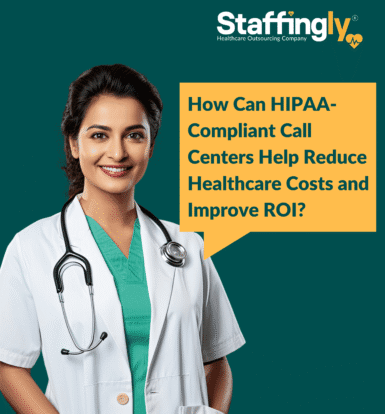
How Can HIPAA-Compliant Call Centers Help Reduce Healthcare Costs and Improve ROI?
Healthcare outsourcing is an essential component of operational efficiency, cost reduction, and enhanced compliance. However, as the healthcare landscape evolves, staying updated with industry standards like HIPAA and other regulatory requirements is critical for optimizing both performance and return on investment (ROI). This article explores the connection between HIPAA compliance and the significant impact it can have on healthcare outsourcing, focusing on improving ROI, reducing costs, and ensuring compliance in healthcare operations. Optimize Healthcare Outsourcing for ROI By incorporating HIPAA-compliant
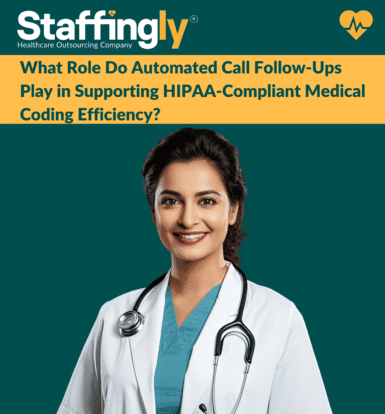
What Role Do Automated Call Follow-Ups Play in Supporting HIPAA-Compliant Medical Coding Efficiency?
Medical coding is the backbone of healthcare revenue. Yet, even the most skilled coders often face delays and denials because of missing documentation, unclear provider notes, or unanswered payer queries. 💬 “Half our denials come from information that could’ve been clarified in a single phone call.” Automated call follow-ups are emerging as a quiet but powerful solution. They don’t just chase loose ends they close gaps, safeguard compliance, and protect revenue before claims ever reach payers. Why Coding Errors Hurt

How Does AI Integration Change the Role of Medical Scribes?
Medical documentation has long been one of the heaviest burdens in healthcare. Physicians spend hours charting visits, managing EMR entries, and ensuring compliance all tasks that pull them away from patient care. Medical scribes were introduced to solve this problem, serving as the physician’s right hand in documentation. But with the rise of AI-driven tools, clinics are asking: how does AI integration change the role of medical scribes? AI Meets Medical Documentation Artificial Intelligence promises faster note-taking, voice-to-text transcription, and
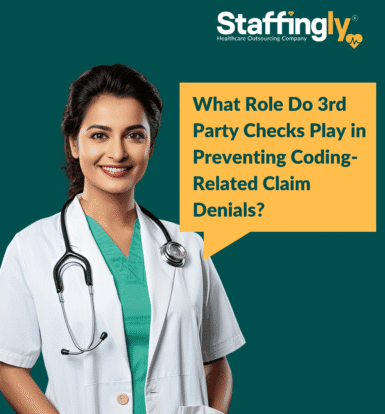
What Role Do 3rd Party Checks Play in Preventing Coding-Related Claim Denials?
In today’s healthcare environment, claim denials remain one of the most frustrating challenges for clinics. While providers focus on care, administrative teams often get caught in a cycle of coding errors, eligibility gaps, and payer rejections. Each denial represents lost time, delayed revenue, and unnecessary stress for both staff and patients. One overlooked solution? Outsourced 3rd party checks. When integrated into the medical coding process, these checks act as a safeguard that keeps claims accurate, compliant, and ready for approval.
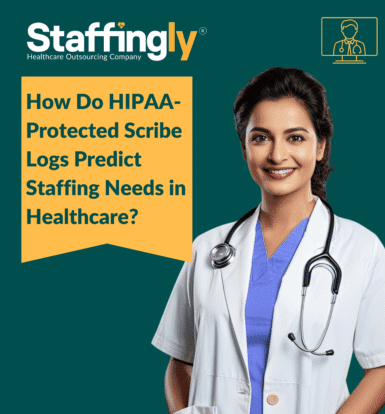
How Do HIPAA-Protected Scribe Logs Predict Staffing Needs in Healthcare?
Every clinic has felt it nurses and providers suddenly overwhelmed, patients waiting longer, documentation falling behind. But when managers look at the schedule, everything seems covered. The missing link? Invisible documentation burdens. 💬 “We didn’t know two providers were spending an extra hour each night finishing charts until denials started piling up.” Traditional staffing models often rely on patient volumes and appointment counts. But the real workload isn’t just how many patients come through the door—it’s how much charting, coding,
 Book a Demo to Build Your Team Today!
Book a Demo to Build Your Team Today!


 Read Case Studies
Read Case Studies 



 Virtual Medical Assistants
Virtual Medical Assistants



